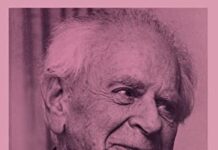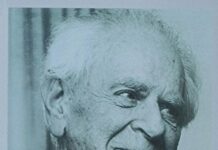
Ebook Info
- Published: 2013
- Number of pages: 415 pages
- Format: PDF
- File Size: 3.96 MB
- Authors: Karl Popper
Description
This unique collection of essays, published together for the first time, not only elucidates the complexity of ancient Greek thought, but also reveals Karl Popper’s engagement with Presocratic philosophy and the enlightenment he experienced in his reading of Parmenides. As Karl Popper himself states himself in his introduction, he was inspired to write about Presocratic philosophy for two reasons – firstly to illustrate the thesis that all history is the history of problem situations and secondly, to show the greatness of the early Greek philosophers, who gave Europe its philosophy, its science and its humanism.
User’s Reviews
Reviews from Amazon users which were colected at the time this book was published on the website:
⭐Popper’s love of the presocratics stems from his hatred of hubristic epistemology, especially as regards science, which he traces back to Aristotle. “… all serious thinkers before Aristotle made a sharp distinction between, knowledge, real knowledge, certain truth (… later: episteme), which is divine and only accessible to the gods, and opinion (doxa), which mortals are able to possess, and is interpreted by Xenophanes as guesswork that could be improved.” (p. 1). “The decisive break comes with Aristotle. … He believes he knows: that he himself has episteme, demonstrable scientific knowledge. This is the main reason why I do not like Aristotle: what to Plato is a scientific hypothesis becomes with Aristotle episteme, demonstrable knowledge. And for most epistemologists of the West, it has remained so ever since.” (p. 2).Popper’s criticism of such hubristic epistemologies suggests a unity of science and other creative activities. “According to this view, literature and science have a common origin; they both originate in the imaginative explanatory story, the imaginative explanatory myth. What distinguishes them is the predominant part played in science by criticism: by that kind of criticism that is dominated by the regulative idea of truth, by the idea of correspondence to the facts.” (p. 106). “It is this critical examination of explanatory stories, or explanatory theories, undertaken in the hope of getting nearer to the truth that I regard as characteristic of what may somewhat loosely be described as rationality.” (p. 109). “The critical approach exerts something like an evolutionary selection pressure upon the theories and so encourages their evolution towards greater truthlikeness.” (p. 126).The connection with literature is quite well established. Thales, for example, “was influenced, according to a suggestion of Aristotle’s, by … Homeric tradition: by the Homeric myth of Oceanus” (p. 109), “Paramenides’ poem was written in imitation of the style of Homer and Hesiod, to whom his language often alludes” (p. 111), and so on.Science took off from this basis as follows. One begins by proclaiming explanatory theories, e.g., “we are told that according to Thales water is the origin of all things, and that the Earth floats on water … like a ship—a theory that appears to have been designed to explain earthquakes, for example.” This is followed by criticism, e.g., “as Aristotle says, to propose such a theory ‘is to forget that the same question may be raised … about the Earth itself.'” And the next step is revision: “It seems probable that this is precisely the criticism that was originally raised against Thales’ theory by Anaximander … for we hear that Anaximander taught that ‘The Earth is aloft. It is held up by nothing. It continues in its place because of its equal distance from all things.'” Now Popper gets a bit carried away: “This theory of an unsupported and freely suspended Earth … is breathtaking in its boldness. It is the first step in the direction of Newton’s theory; and in my opinion one might say that without Anaximander’s bold theory there might never have been the development of scientific thought that lead to Newton, and beyond him. Yet this breathtaking step on the way to modern science was not based upon observation, as so many empiricists have it, but rather upon a critical revision of the mythical poetry of Homer’s Iliad and of Hesiod’s Theogony” (p. 110).Popper gets even more carried away in the case of Parmenides, whom Popper thinks made “the most important contribution to theoretical physics ever made” in that “he built the first deductive system describing the universe, whose refutation led to the foundations of physics” (p. 126). Popper’s support for these claims is extremely thin, and is scarcely grounded in the original texts.The “first deductive system” alluded to here is really just one single deductive argument proving that movement is impossible. “The proof was (more or less simplified): (1) Only being is (only what is, is). (2) The nothing, the non-being, cannot be. (3) The non-being would be the absence of being: it would be the void. (4) There can be no void. (5) The world is full: a block. (6) Movement is impossible.” (p. 71).The “refutation” which “led to the foundations of physics” is the atomists’ argument that all is atoms and void. “The atomic theory arose, as almost every empirical theory does, from an empirical refutation of its predecessor. Parmenides had derived an empirically testable conclusion: the conclusion that motion is impossible. Yest this conclusion is clearly refuted by experience; and so the refutation of the conclusion can be used, step by step, to refute part of the original position” (p. 158), as follows. “There is movement. Thus: The world is not full. There is empty space. The nothing, the void, does exist. Thus: The world consists of the existing, the hard and full, and of the void: Of ‘atoms and the void’.” (p. 103).These ambitious extrapolations aside, the rise of the critical tradition naturally led to epistemological questions. “Conflicting stories could exist in Egypt without the consciousness of a clash. But among the more critically minded Greek cosmologists, the multiplicity of conflicting and usually dogmatic claims of the different cosmological theorists led to the question: How can we decide between these conflicting stories?” (p. 115).This time it is Xenophanes who has the honour of posthumously serving as Popper’s mouthpiece. “‘But as for certain truth, no man has known it, \ … \ And even if by chance he were to utter \ The final truth, he would not himself know it: \ For all is but a woven web of guesses.'” (p. 115). “[These verses] quoted from Xenophanes are of great importance … Personally I regard them very highly, for I see in them a kind of anticipation of my own theory of knowledge, according to which all our scientific theories are myths, of in the words of Xenophanes, ‘woven webs of guesses’. I hold that scientific theories remain essentially uncertain or hypothetical, although under the influence of criticism they may in time become more and more truthlike … But even this view was anticipated by Xenophanes, who is remembered for the following verses: ‘The gods did not reveal, from the beginning \ All things to us; but in the course of time, \ Through seeking we may learn, and know things better.'” (p. 116).
⭐Sir Karl Popper writes: “Parmenides opened my eyes to the poetic beauty of the Earth and the starry heavens, and he taught me to consider them with a new searching look. He adds: It (Parmenides’ approach to understand the world) was, for all I know, the first deductive theory of the world, the first deductive cosmology: One further step led to theoretical physics, … “What Popper writes about Parmenides and other Pre-Socratics is wishful thinking, far from representing these wise sages who knew the path to get in contact with the reality based on: “We are in contact with true reality, if we forget all theory”. Popper gives no hint, how this ‘extraordinary reality behind the familiar one’ is to be perceived. It is the world that Parmenides calls BEING (eón). He taught the path to experience it.Poppers misinterpretation of Parmenides results from misconceiving BEING (eón), commonly thought to be Being (familiar world), and Non-BEING (mè eón), commonly thought to be Nonbeing (opposite of Being). This is wrong. Popper has to be excused. Already Parmenides criticized his contemporaries who mixed up BEING with Non-BEING:1. … they (people) are carried along deaf and blind alike, dazed, beasts without judgement, convinced that „to be (BEING)“ and „not to be (Non-BEING)“ are the same and not the same (B 6.5-9).The correct interpretation is: Non-BEING is Being, the created world of the familiar senses, and BEING is the eternally creative world that creates it by emanation. This is the original interpretation, which got lost with the disappearance of the unwritten philosophía with the closure of the last neo-Platonic schools. It is required to understand the two paths of gaining two kinds of knowledge that Parmenides refers to in his poem On Nature.The first path is the Path (hódos) to Truth (alétheia), which he also calls the path from Non-BEING (mè eón) to BEING (eón). It is based on the first cognition principle, which Parmenides taught, like all other masters of the philosophía, to his students: The consciousness and five senses can be expanded by a unique rigorous meditative self-observation that Plato calls in Phaidros (81a) the pleasurable (phaidros) practice of dying (meléte thanátou). It is the source of all knowledge (gnósis) that the philosophía provides (see my other reviews).The second path is the path of opinion (dóxa) confined to the familiar senses. It satisfies the second cognition principle: “Being determines consciousness (German: Das Sein bestimmt das Bewusstsein)”. The familiar sciences (e.g. the natural ones) are dedicated to investigate Being. This corresponds to the path of opinion, because the investigation is based on improvable hypotheses (assumptions, conditions, conjectures like the mathematical axioms) and conclusions that must be believed in. We associate this approach with “rational thinking”.This implies that Being cannot – contrary to what most of us believe who accept that it to be the one and only or true reality – be proven to exist. The prevailing opinion is even today that its existence is obvious. But this means little. As Being is the world that has to be believed in, it means that its existence cannot be proven. Parmenides formulates this fundamental observation (B 7.1):2. For never shall this prevail that ‘things that are not (Being = Non-BEING = mè eón)’ are (exist).BEING, on the other hand and in juxtaposition to Being, can – believe it or not – be truly experienced and thus proven with the practice of dying by unconditioned extrasensory self-observation. I am experienced with such a practice in my Tai Chi-school that offers the Tao-path. I view it as the Chinese counterpart of the Path to Truth.It increasingly accesses the truth (aletheía) by unconditioned recollection (anamnésis) that emerges out of itself. It cannot be questioned by the practitioner who increasingly experiences BEING with it in function of his capability to rigorously get into a quiet state of mind. Parmenides characterises BEING:3. BEING (eón) is uncreated and indestructible, very unique, without siblings (non-dual), steadfast, not to be completed (Frag. 8).He also calls it the ONE (hén) and recommends:4. It is necessary to speak and to think ‘what is’; for ‘BEING (‘what truly is’) is (exists), but ‘nothing (Non-BEING = Being)’ is not (B 6.1-2).I extract from this last quote, which is commonly mistranslated by the trivial statement “Being is and Nonbeing is not”: Practitioners (adepts of the practice of dying) should dedicate themselves not to any abstractions (i.e. conjectures by which Being is conceived). If they would, they could not perceive BEING.I complete my criticism of Sir Karl Popper by stating that all other profound statement of Parmenides on BEING and Non-BEING can be brought in perfect agreement with what I indicate above.Who wants to know more about the Path to Truth (Tao path) or first cognition principle taught by the “genuine Parmenides” and thus overcome the illusion (blah blah) reported about him, will find more information in The Plato Code. For a review of it see: Man, the Measure of All Things? in The Philosopher, Volume 102 No. 2, 2014.See also my critical reviews of:Plato: Timaeus and Critias (Penguin Classics), translated by Desmond Lee Plato Republic (Hackett Classics), translated by C. D. C. Reeve,Plato: Symposium (Hackett Classics), translated by Alexander Nehamas and Paul Woodruff,Plato: Republic (Hackett Classics), translated by C. D. C. Reeve,Theology of Arithmetic, by Robin Butterfield,The Essence of Truth: On Plato’s Cave Allegory and Theaetetus (Bloomsbury Revelations), by Martin Heidegger.For futher details see my Youtube presentation. TAO: PATH TO DISCOVER THE PSYCHO-COSMIC ORIGIN OF THE WESTERN CULTURE.
Keywords
Free Download The World of Parmenides: Essays on the Presocratic Enlightenment 1st Edition in PDF format
The World of Parmenides: Essays on the Presocratic Enlightenment 1st Edition PDF Free Download
Download The World of Parmenides: Essays on the Presocratic Enlightenment 1st Edition 2013 PDF Free
The World of Parmenides: Essays on the Presocratic Enlightenment 1st Edition 2013 PDF Free Download
Download The World of Parmenides: Essays on the Presocratic Enlightenment 1st Edition PDF
Free Download Ebook The World of Parmenides: Essays on the Presocratic Enlightenment 1st Edition




